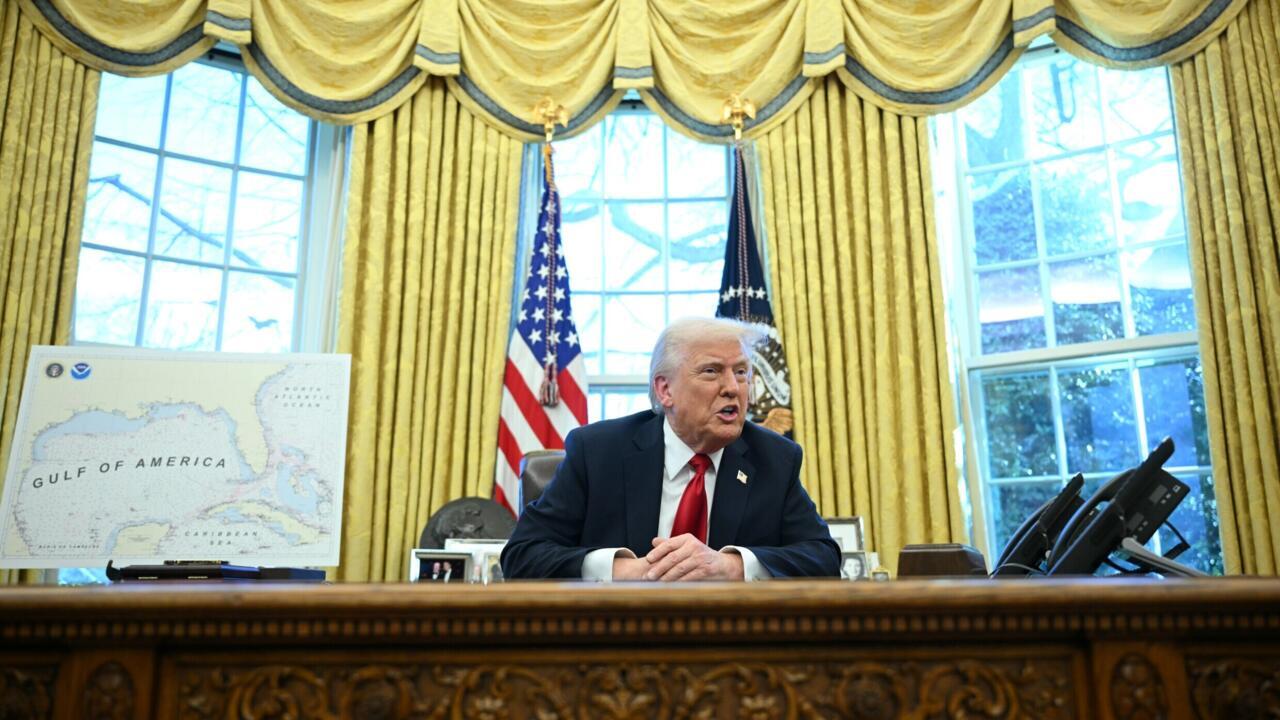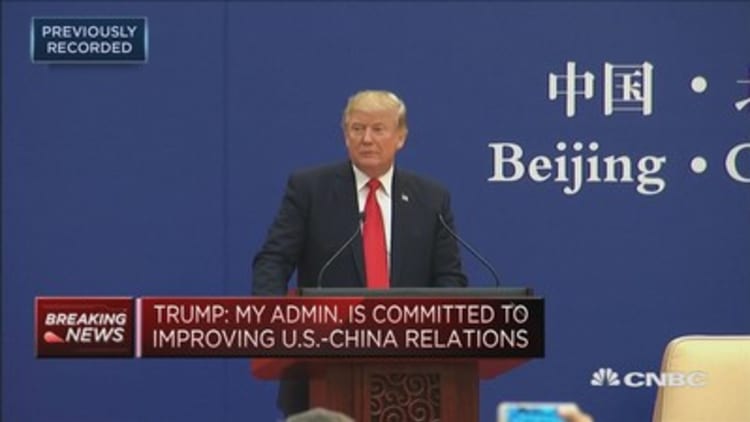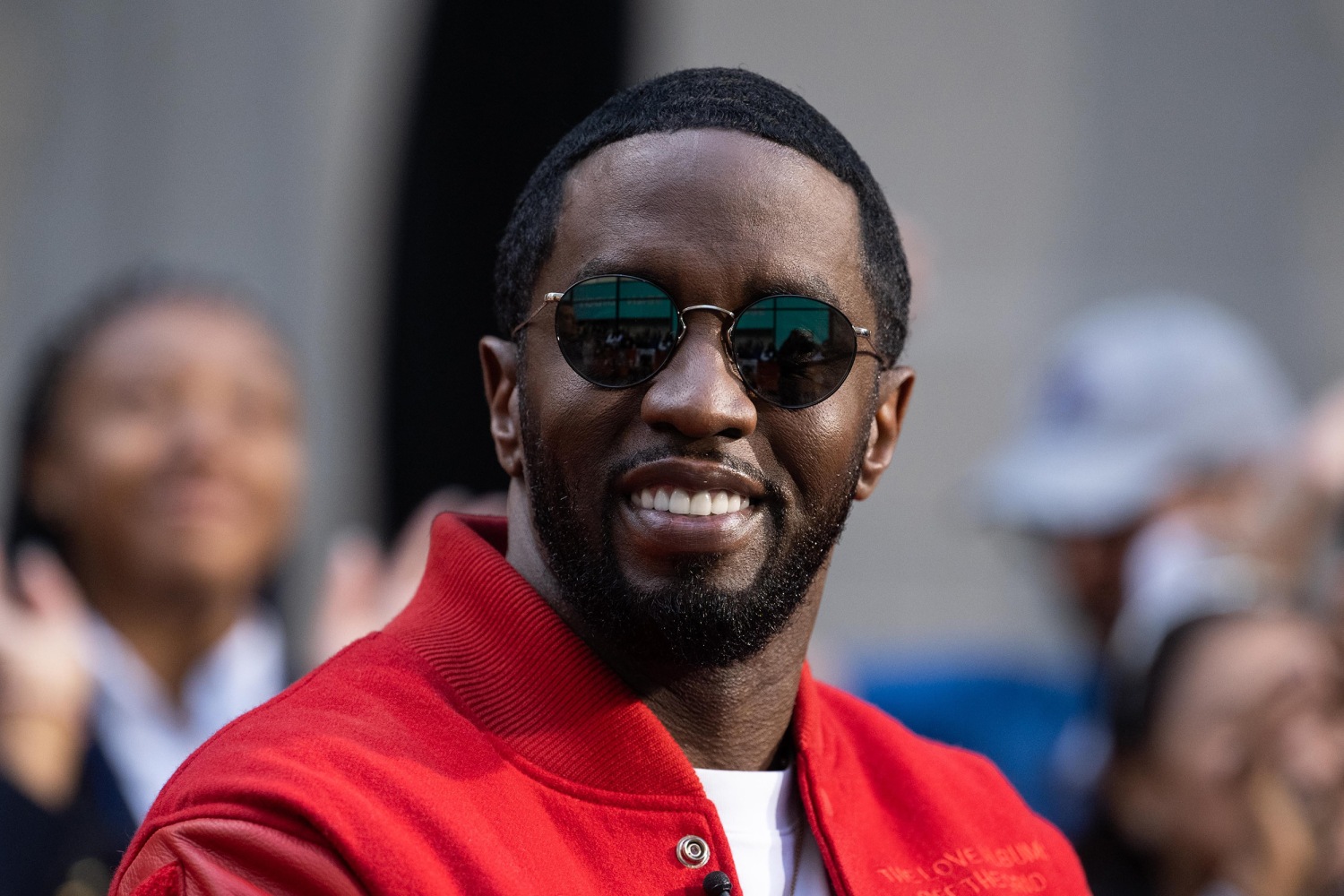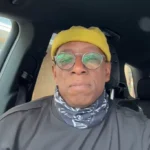Now Reading: Trump Dangles Tariff Cuts for China in TikTok Sale Drama
-
01
Trump Dangles Tariff Cuts for China in TikTok Sale Drama

Trump Dangles Tariff Cuts for China in TikTok Sale Drama
Trump’s Unexpected Offer: Tariff Relief for TikTok Deal Approval
In a surprising twist to the ongoing TikTok saga, former President Donald Trump has thrown a new bargaining chip onto the table. During a press conference Wednesday, Trump suggested he would consider reducing tariffs on Chinese goods if Beijing approves the sale of TikTok’s US operations.
“Maybe I’ll give them a little reduction in tariffs or something to get it done,” Trump stated, adding that “China is going to have to play a role” in approving any TikTok-related divestiture. This unexpected negotiation tactic comes as ByteDance faces an imminent April 5 deadline.

The TikTok Countdown: What’s at Stake?
The pressure is mounting for ByteDance, TikTok’s Chinese parent company. Under a 2024 law, ByteDance must find a non-Chinese buyer for TikTok by April 5 or face a complete US ban. The legislation stems from bipartisan concerns that the app poses national security risks.
US lawmakers fear TikTok’s Chinese ownership makes it vulnerable to Beijing’s influence, potentially allowing the Chinese government to conduct influence operations against Americans and harvest sensitive user data. With over 170 million US users, the stakes couldn’t be higher.
In what may be a relief for TikTok’s massive user base, Trump also indicated he would consider extending the April deadline if an agreement isn’t reached in time. This potential flexibility marks a shift in the otherwise rigid timeline.

Tariffs vs. TikTok: Trump’s Strategic Calculation
Trump made it clear he’s weighing the relative value of both pieces in this international chess match. “TikTok is big, but every point in tariffs is worth more than TikTok,” he remarked, suggesting that while he’s willing to offer tariff reductions, he views them as the more valuable economic lever.
This comment reveals the complex economic calculations at play. The former president is essentially suggesting a trade deal where China gets relief from some US tariffs in exchange for allowing ByteDance to sell TikTok’s US operations to American investors.
Economic analysts note that this approach represents a significant shift from the previous hardline stance against Chinese technology companies and could potentially open the door to broader trade negotiations between the two economic superpowers.
China Responds: Open to Discussion
In a measured response to Trump’s proposition, China’s commerce ministry addressed the tariff issue during a Thursday news conference. Officials stated that Beijing’s position remains “consistent” and that China is willing to engage with Washington.
The ministry emphasized that any discussions would need to be based on “mutual respect, equality, and mutual benefit,” their standard diplomatic language for international negotiations. Notably, they didn’t reject Trump’s suggestion outright, leaving the door open for potential talks.

White House Optimism Despite Looming Deadline
Meanwhile, the Biden administration appears optimistic about resolving the situation before drastic measures become necessary. Vice President JD Vance recently expressed hope that a deal to keep TikTok operating in the US will be finalized by the early April deadline.
However, Vance acknowledged that some complications could push a final agreement past the deadline. He didn’t provide specifics about potential buyers, maintaining the administration’s tight-lipped approach to the negotiations.
Industry insiders speculate that several American tech companies and investment groups have been exploring acquisition possibilities, though no frontrunner has emerged publicly.
The Bigger Picture: Tech, Trade, and Geopolitical Tensions
The TikTok controversy represents just one facet of the broader technological and economic competition between the United States and China. Both nations have been locked in an escalating battle for digital supremacy, with control over social media platforms, semiconductor production, and artificial intelligence becoming central to national security strategies.
Trump’s willingness to trade tariff reductions for TikTok concessions illustrates how intertwined economic and technological policies have become. It also highlights the tremendous value of digital platforms in today’s geopolitical landscape.
As the April 5 deadline approaches, millions of American TikTok creators, users, and advertisers wait anxiously to see if a solution emerges. For now, the platform’s future hangs in the balance as Washington and Beijing engage in this high-stakes diplomatic dance.
Whatever the outcome, this episode will likely set important precedents for how democratic governments handle popular apps with foreign ownership—and how far they’re willing to go to address perceived national security concerns in the digital age.










